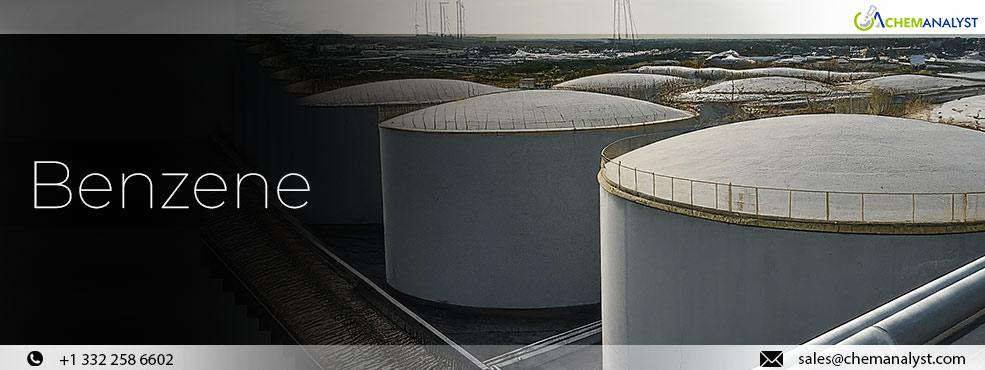Welcome To ChemAnalyst

Hamburg (Germany)- The Benzene prices in the European market plunged towards the end of April 2024 amidst the continuous decline in the prices of Naphtha, which is the primary feedstock required to produce Benzene. Major facets impacting the overall price variations of naphtha include the geopolitical distress occurring in the global market, accompanied by the sufficient stockpile availability in the domestic market, governing the final production cost of Benzene in the European market. In April, private sector activity in the Eurozone continued to improve, with the service sector experiencing a strong rebound, offsetting further contraction in the manufacturing industry.
Adding on to these factors, the demand outlook for Benzene from other monomer production units, such as styrene, remained under pressure at the end of April, significantly impacting the final selling prices of Benzene in the European market. In the week ending April 26th, Benzene prices were observed at USD 1200 per MT, FOB Hamburg in the German market.
Lower liquefied natural gas (LNG) prices in Europe have bolstered greater interest in purchasing Algerian LNG shipments, as traders anticipate strong LNG and gas exports from Algeria to continue throughout this month, and it is expected to impact the Benzene production cost. European stock markets turned bearish following explosions in Iran, which heightened concerns about escalating tensions in the Middle East.
Stakeholders emphasized the necessity for improved coordination between the gas industry and the electricity sector to facilitate the energy transition and guarantee efficient and cost-effective infrastructure investments. During the Eurogas annual conference in Brussels, the future of gas beyond 2040 was discussed, highlighting the actions required during the EU's next political phase to promote the transition to renewable gases.
Following disruptions to the supply chain and concerns about the European automotive industry's competitiveness, energy tariffs returned to long-term inflation-adjusted averages last year. Styrene, butadiene, and other monomers are the crucial elements required for tire production in the automotive industry. Benzene is a primary element required in the production chain, and the consequent impact on Benzene prices in the regional market can be witnessed.
Additional price support came from Eurozone data indicating that business activity expanded this month at its fastest rate in almost a year. The market, which has been impacted by minimal growth in the Eurozone, is likely to find such improvements encouraging. Demand is expected to remain steady from industries requiring Benzene, such as styrene and phenol manufacturers amidst cost side dynamics maintaining balance. Thus, as per ChemAnalyst, Benzene prices in the European market are expected to stay low and stable in the short term due to subdued demand, despite sufficient stock availability.
We use cookies to deliver the best possible experience on our website. To learn more, visit our Privacy Policy. By continuing to use this site or by closing this box, you consent to our use of cookies. More info.
